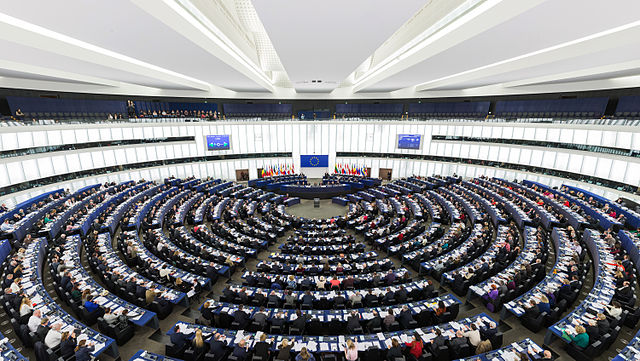
Citizens of the United Kingdom vote tomorrow today* on Brexit, the referendum on whether Britain should leave Europe. The impact, no matter which way the vote goes, is already global.
We’ll have a wrapup on the weekend. Meantime, here are some suggestions of where to follow the breaking news:
- The BBC’s page for all stories about the European Referendum: http://www.bbc.com/news/politics/eu_referendum
- The Conversation (academics writing for general audiences) page on the European Referendum: http://theconversation.com/uk/eu-referendum-2016
- European Union site: http://europa.eu/index_en.htm
- United Kingdom withdrawal from the European Union, Wikipedia: https://en.wikipedia.org/wiki/United_Kingdom_withdrawal_from_the_European_Union
- UK’s EU referendum, Financial Times: http://www.ft.com/eu-referendum
- Brexit | The Economist: www.economist.com/Brexit
- Der Spiegel interview with Wolfgang Schäuble, German finance minister: http://www.spiegel.de/international/europe/spiegel-interview-with-wolfgang-schaeuble-on-brexit-a-1096999.html
- France24: compiled Brexit stories: http://www.france24.com/en/search/?Search%5Bterm%5D=Brexit&Search%5Bpage%5D=1
- Deutsche Welle: compiled Brexit stories http://www.dw.com/search/en/brexit/category/9097/?
In case you missed it:
Here’s F&O’s International Affairs analyst Jonathan Manthorpe’s take on Brexit, from June 11, and an academic’s analysis last month on forecasts.
Small Stampede for the Brexit, by Jonathan Manthorpe, F&O, column
It is unlikely that Britons are going to give a conclusive answer to the question whether they should remain in the European Union or leave it when they mark their referendum ballots on June 23.
Which Brexit forecast is trustworthy? by Nauro Campos, Brunel University London.
At one extreme, Economists for Brexit predict that the main economic consequence of Brexit is that UK incomes in 2030 will be about 4% higher. In the middle, studies suggest UK incomes by 2030 will be will be unaffected. And At the other extreme, various studies (including the Treasury, the LSE, the OECD, and the National Institute for Economic and Social Research reports) indicate substantial losses to the UK economy, of about 7% by 2030. How does one think this through? An economist offers suggestions.
Our new works in the past week:
- Canada’s National Aboriginal Day/DEBORAH JONES Column
- African democratic reform falters and falls/JONATHAN MANTHORPE Column
- O Canada … Oh, grow up TOM REGAN Column
- Agent Orange: A Father’s War, A Son’s Toxic Inheritance/STEPHEN M. KATZ Magazine
- Hissène Habré: a pivotal case for international justice in Africa/ PIERRE HAZAN Analysis
- Financial firms invest billions in banned cluster bombs/ ALEX WHITING Report
- Going green helps Rust Belt cities revive/ WINIFRED BIRD Report
- Fighting for transgender rights in the U.S./ By Reuters Report
- Sexuality as a spectrum, the wisdom of Indonesian Bugis/SHARYN GRAHAM DAVIES Expert Witness
- Massacre at U.S. nightclub, ISIS claims responsibility/Reuters Report
Last but not least, recommended: a Finding:
*updated/edited June 23
~~~
Facts and Opinions is a boutique journal of reporting and analysis in words and images, without borders. Independent, non-partisan and employee-owned, F&O is funded by our readers. It is ad-free and spam-free, and does not solicit donations from partisan organizations. To continue we require a minimum payment of .27 for one story, or a sustaining donation. Details here; donate below. Thanks for your interest and support.

